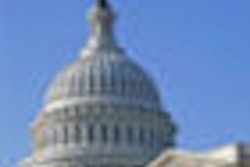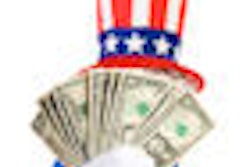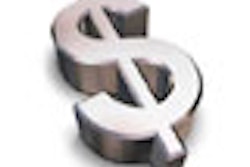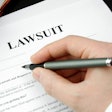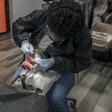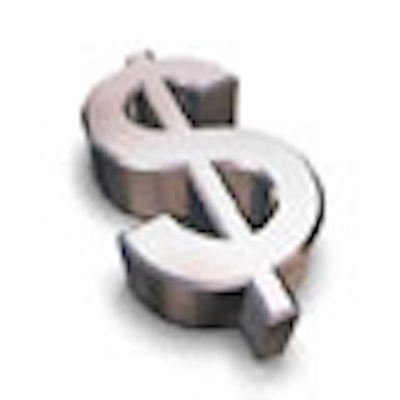
Good news, dentists. The feds are making it easier for you to pay less in taxes and save more money when you file your tax return.
"There’s some changes in the tax law for 2007 that are really good for dentists," says Andrew Schwartz, a certified public accountant and co-owner of tax firm Schwartz & Schwartz, P.C. in Woburn, Massachusetts. "And the new tax law, the one with the rebates, currently in Congress also has extra benefits for dentists in 2008."
Schwartz spoke about tax issues affecting dentists and associates on Thursday at the 33rd Annual Yankee Dental Congress in Boston. His firm handles 2,000 tax returns, with two-thirds filed by dental practices.
But with every piece of good tax news comes a bit of bad. The Internal Revenue Service estimates a $345 billion gap between taxes owed and taxes paid, and three-quarters of that gap is due to small businesses and self-employed taxpayers who are overzealous with itemized deductions. As a result, the IRS will be scrutinizing this group, with penalty flags in hand. Schwartz estimates that one out of 20 people earning over $1 million and one of every 33 self-employed business owners will get audited.
Don’t wave the red flags
"Everything is deductible -- until you get audited," says Schwartz, who advises clients to be careful about what they deduct. To be deductible, an expenditure must be both "ordinary" and "necessary" for business. So a Blackberry used for managing business affairs meets those terms, but an expensive leather carrying case probably won’t.
Computers are deductible if you bought one for the convenience of the employer (your office manager does a lot of admin work at home so she needs a computer there, for example) or it’s a requirement for employment (all the computers in your office). Beepers and pagers for work are deductible, as are the business portion of your cell phone and Internet access costs.
Automobile expenses are deductible if you drive between job sites and to conferences, interviews, or other business meetings (so are parking and tolls). They’re not deductible for drives between home and your regular office. The standard deduction rate for 2007 is 48.5 cents per mile. Even though oil is at $100 a barrel, the 2008 rate will only increase by two cents. If you put a lot of business miles on your car, Schwartz recommends adding up all expenditures for gas, insurance, repairs, maintenance, figuring the depreciation value, and multiplying it all by the percentage of business-related miles you drove. The figure could be more than the standard mileage deduction.
Big investments in your office pay off
Dental equipment and insurance are big write-offs. The IRS made it easy to skip calculating the depreciation value with Section 179, which lets you immediately write off up to $125,000 of equipment you buy annually. If passed, President Bush’s new tax proposal would bump up Section 179 to $250,000. "Between now and 2010 is a good time to invest in equipment," says Schwartz. "After that, the rules may revert back to the less favorable rates." A caveat: If you borrow money to pay for equipment, you’ll get the upfront tax break and be able to deduct up to $125,000 from your tax bill -- but that could be overshadowed by taxes you’ll pay on the loan afterwards.
Don’t forget money spent on offices supplies, reference books, professional journals and dues, and costs for purchasing and cleaning uniforms like lab coats and scrubs, are deductible. Malpractice and business insurance are deductible, too, but life and disability insurance are not.
You can deduct money spent on education, exams, and licenses that improve your skills in your current line of work. Unfortunately, dental school tuition can’t be deducted since it qualifies you for a new line of work. However, tuition for a specialty dental program -- be it continuing education, or going back to get a specialty (such as implantology) -- is deductible since it's considered skills-improvement. Schwartz says many dentists forget this because they’re often not making money in their new specialty at first -- but they could get money back from the IRS. "If you’re operating at a net loss, you could get a refund on back taxes you paid from two years prior." For example, say you paid $50,000 in tuition but only made $20,000 in income, leaving you with a $30,000 net loss. If you earned $150,000 in one of the prior two years, which pushed you into the 30 percent tax bracket, the IRS will refund you $9,000 (30 percent of $30,000).
For U.S. business travel, you can deduct 50 percent of meals and incidentals. Instead of keeping every receipt, you can just use a daily rate based on the city or region you were in. (For example, New York City’s per diem is $64; Omaha’s is $49). You can find the rates in IRS Publication 1542 and online here.
Home office deductions have always been a red flag but Schwartz says the IRS has made it easier this year. "It’s super lenient right now, although it might tighten up again next year, so take advantage." A home office must be a portion of your home used "regularly and exclusively" in connection with your business, including administrative and managerial tasks. Divide your home’s total square footage by your home office’s square footage and you can deduct that percentage in utilities, home mortgage, maintenance, and repairs.
The "Independent" Associate
Many young associates are hired as independent contractors, meaning their dental employers don’t withhold taxes. That requires associates -- and all self-employed dentists -- to keep a sharper eye on their receipts and spending, but Schwartz believes the positives of being your own boss outweigh the negatives. "You can deduct all your professional expenses directly from your income. So if you earned $50,000 and spent $10,000 in expenses, you’re only taxed on $40,000 of income." Another plus: your health-insurance premiums (if you pay them yourself) are 100 percent deductible.
You can also stash higher amounts of income for retirement compared to the typical 401(k) accountholder. A SEP IRA lets you invest 20 percent of net self-employed income. A SIMPLE IRA allows $10,500 plus three percent of net income. A Solo 401(k) specifically for the self-employed allows $15,500 plus 20 percent of net income. "If one spouse earns a lot of money, this type of IRA lets you shield most of the other spouse’s income in a retirement plan, which really saves on taxes," says Schwartz. You can still open a SEP IRA for tax year 2007 until April 15, but SIMPLE and Solo 401ks can now only be opened for tax year 2008.
The major disadvantage of being an independent contractor is the "self-employment" tax. While employers pay half of their employees’ 15.3 percent Social Security tax, the self-employed are responsible for all of that amount. "That’s why it’s important to keep track of every business-related expense so you can deduct it straight from your income," says Schwarz. "For every $100 of expenses you lose track of, you're giving $45 to the Feds." But the more you earn, the less you actually will pay in this tax. You’ll only pay Social Security on the first $97,500 you earned in 2007. (This will increase to $102,000 in 2008.)
Another self-employed downer: quarterly estimated taxes. Having an accountant is helpful for this; Schwartz estimates his clients’ quarterly taxes and sends them reminders when it’s time to pay.
To keep track of business-related expenses dentists typically incur, Schwartz advises entering financial info into a software program like Quicken or Microsoft Money, which can create regular reports on how much you spend and save. Use a separate credit card for all business expenses and ask the card company for an end-of-the-year report that separates expenses into different categories. Another reporting system, albeit one that's most error prone, is setting up a filing system for receipts and cancelled checks.
Because taxes aren't withheld during the year, don't be forgetful. Schwarz recommends you put away at least one-third of your total income for taxes. Set up a separate account and deposit a third percent of every paycheck there. "That'll save you from shock and audits," he says.




